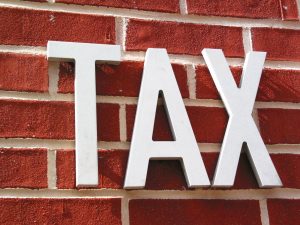Business Taxes For Which Cannabis Entrepreneurs Must Prepare
Like business owners in any industry, cannabis entrepreneurs must prepare for the various taxes which will be levied by state and local governments. This can be an overwhelming task – especially in the current environment of unsettled regulations and uncertain administrative policies. However, strategic planning can devise tax strategies which reduce a company’s overall tax liability, and thereby improve its profitability. Prepare your business for the overhaul of the cannabis industry which has already started across California.
By consulting with a cannabis business attorney, you can prepare your business for profitable operations from Day One. 
Different Types of Cannabis Taxes
- The Medicinal and Adult Use Cannabis Regulation and Safety Act (“MAUCRSA”) imposes a cultivation tax upon cannabis growers, which is codified in the California Revenue and Taxation Code §34012. This tax is collected on the first sale or transfer of cannabis by the cultivator to the manufacturer. It is therefore the first tax assessed after marijuana is harvested and enters the commercial market.
- Like any other retail sale, cannabis sales in California are subject to an excise tax on the average market price of the product. This is currently set at fifteen percent by the MAUCRSA at the California Revenue and Taxation Code §34011. It is important to note that this percentage is subject to change. The average market price is also a volatile metric which can be determined either by the State Board of Equalization or the California Department of Tax and Fee Administration.
- The MAUCRSA specifically protects the rights of cities and counties to assess other taxes in addition to the state excise tax. California Revenue and Taxation Code §34021.5. While these entities may choose not to do so, business owners are wise to prepare for additional taxes, as it seems unlikely that any government entity would forego an obvious source of revenue.
Medical Marijuana Businesses
According to the State of California Franchise Tax Board, medical cannabis businesses should operate as nonprofit cooperatives or collectives in order to comply with the current state of the law. These businesses do not qualify for income tax exemption under the Internal Revenue Code, nor under the California Revenue and Taxation Code. Though medical marijuana businesses can officially organize as a nonprofit mutual benefit corporation or nonprofit mutual benefit cooperative, this still does not grant them tax-exempt status. Regardless of the business entity type, such businesses must file appropriate tax returns.
However: despite the fact that medical marijuana businesses are not officially tax-exempt, Proposition 64 did exempt sales of medical cannabis, medical cannabis concentrate, and edible or topical medical cannabis products from sales and use taxes. According to the California Board of Equalization, qualified patients must present their medical marijuana card and government identification at the time of purchase. The medical marijuana retailer does not collect sales tax on the transaction. Retailers should also claim the deduction on their sales and use tax returns and maintain the proper records to document all exempt transactions.
California’s imminent sales of recreational marijuana can bring all sorts of business opportunities for the entrepreneurs who are prepared to access them. An experienced cannabis business lawyer can help cannabis entrepreneurs access capital, develop tax strategies, and build a profitable business from the ground up.
The Los Angeles Cannabis Law Group represents growers, dispensaries, collectives, patients and those facing marijuana charges. Call us at 949-375-4734.
Additional Resources:
California’s New Marijuana Taxes – An Overview, August 23, 2017 by Jim Hunt, Bloomberg Bureau of National Affairs
More Blog Entries:
Cash Demanded for California Marijuana Dispensary Taxes, February 24, 2016, by Cannabis Law Group
 Cannabis Law Group's Medical Marijuana Legal Blog
Cannabis Law Group's Medical Marijuana Legal Blog




